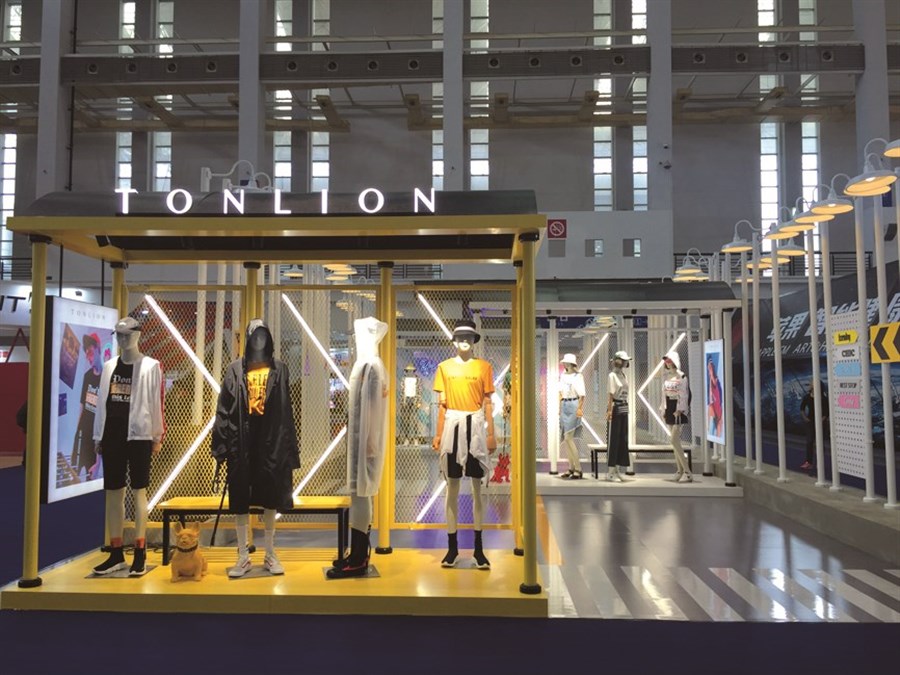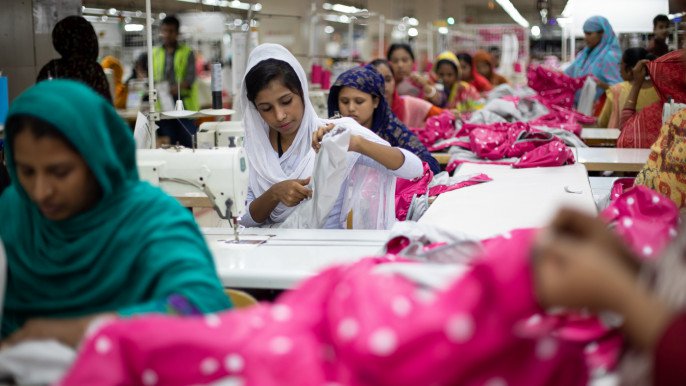Published in Shanghai Daily on October 28, 2017

Photo: Shanghai Daily
NINGBO, China’s biggest clothing manufacturing center, is developing the industry through everything from bespoke clothing to smart technology and the Internet.
“Ningbo now has about 16,000 clothing companies, producing 1.5 billion pieces a year, with an annual output of 120.68 billion yuan (US$18.17 billion),” Dai Yun, deputy director of the Ningbo Economic and Information Technology Commission, told reporters at the 21st Ningbo International Fashion Festival last week under the theme of “Ningbo’s clothes for the world’s beauty.”
The four-day fair at the International Conference and Exhibition Center featured clothes from 239 companies from 12 countries and regions.
Various deals were signed during the fair, including US$1 million contacts signed between Ningbo Huaxia Garments Co and buyers from India and Middle East.
China is upgrading its industrial production as consumers demand better quality and more choices, and manufacturers are focussing on customers’ requirements for individual service.
“We already launched tailor-made services for men several years ago and this year we started doing that for women,” said Zhu Mengdi, a regional development manager of Romon Group, who is in charge of the company’s business in southwest China.
Zhu said his group targeted customers with relatively higher incomes — tailor-made suits cost about 3,000 yuan — and the high-end market, such as wedding outfit.
“We now have about six stores, each with one professional tailor, in Shanghai and Ningbo, which provide services for women,” Zhu said. “And more stores will open in the future.”
Other companies target the lower end of the market, but sometimes face a problem of perception.
“People have a stereotype that tailor-made clothing is a luxury item only found in up-market stores or from big-name brands,” said Zhuang Xuyong, technical director of Deifeiciga, a local brand offering bespoke clothing with their own store in Yinzhou District of Ningbo and their own factory located in Qiucun Town, Fenghua District.
“But a piece selling for 6,000 yuan from a big brand can actually be made for about 2,000 yuan,” said Zhuang.
Smart manufacturing
The broader apparel industry also faces the challenge of rising labor costs at home and the shifting of factories to counties with lower wages.
But Ningbo-based companies are turning to smart manufacturing, replacing labor with high-tech machines.
“Ningbo is the first city to pilot the ‘Made in China 2025’ project and the local government is investing a total of 13.3 billion yuan over the next three years to promote smart manufacturing and industrial upgrading,” said Chen Zhongchao, vice mayor of Ningbo.
Ningbo Cixing Co Ltd developed an automatic knitting machine that can complete a sweater in 45 minutes. The computer-programmed machine is fed by reels of threads.
“We now have sold about 180,000 such machines and have about 30 percent of the global market,” said Zhang Hong, a research and development engineer with Cixing.
Zhang said the machines can help manufactures reduce their workforce and a single worker can manage eight machines.
The Internet is also reshaping clothing retailing as e-commerce platforms take off and self-service shopping becomes increasingly popular.
“E-commerce has bounded ahead in recent years,” said Liu Xin, deputy director of the industry department of the China National Textile and Apparel Council.
E-commerce taking off
The volume of clothes sold on the Internet grew about 20 percent year on year between January and August this year, according to Liu.
“Our trade volume on the Internet has reached 2.5 million yuan per day and accounts for about 40 percent of the company’s whole trade volume,” said Ye Qiaokun, the development manager of Tonlion, a brand under Ningbo Beyond Fashion Group Co Ltd.
With the increasing popularity of e-payment through mobile phones, self-service shopping is becoming another hot trend in China’s retail sector.
Ningbo Cixing has developed a self-service machine selling shoes. The shoes are put on the shelves inside the box-shaped machine and people can see examples through the glass fronting the cabinet. A touch screen allows them to choose size and color and pay by Alipay or WeChat by scanning the QR code displayed on the screen after they make their choice.
“The machine has not been put into the market. But we are finding the best locations to place them,” said Zhang.
 CPD RMG Study Stitching a better future for Bangladesh
CPD RMG Study Stitching a better future for Bangladesh



